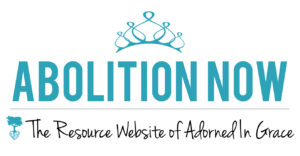
To me, August means peaches. Sweet, juicy orange globes with a streak of fiery red. Their peach fuzz itches my arms as I pull them gently from the tree. At home, we rinse them under hot water to peel back their delicate skin. Even the slightest bump can cause an unsightly bruise. I love their rich fruit, but unlike some orchard bounties, they are so fragile.
So fragile.
The huge lack of shelter for victims is our problem, too.
To me, August means peaches. Sweet, juicy orange globes with a streak of fiery red. Their peach fuzz itches my arms as I pull them gently from the tree. At home, we rinse them under hot water to peel back their delicate skin. Even the slightest bump can cause an unsightly bruise. I love their rich fruit, but unlike some orchard bounties, they are so fragile.
So fragile.
Today, as I stood by the sink cutting bruise spots out of the golden flesh, I couldn’t help but think of the fragile, bruised lives of those who have lived through the horrors of human trafficking. These beautiful girls have been through so much. They deserve to be handled gently.
It’s estimated that only one out of one hundred trafficked people—mostly girls—are rescued once they have been abducted. Others, desperate enough to escape their horrific situation, attempt to leave on their own. However, these girls often find themselves on the streets without money, friends or job skills—making them extremely vulnerable to becoming trafficked again. “I arrest (trafficked) people and then have nowhere to put them,” explains one local FBI agent.
Grasping these realities can be discouraging. When we look at the sheer number of people being trafficked all over the world (now ranked the second largest criminal industry globally), and then in Portland (ranked second for the greatest number of children found in forced prostitution among all U.S. cities), it can seem downright overwhelming. There are those, however, who choose to see the information differently—not only as facts to be mourned, but as a clear call to action.
Safe houses and other shelters are a crucial part of the rescue and recovery process for those victimized by human trafficking. Not only will girls who have escaped or sought help have a place to go, but even those who have been arrested can be given a chance to leave the lifestyle, rather than returning to the streets. As trafficking increases within the entire state of Oregon, the need for these shelters is growing fast, with between one and three new cases per week. Sadly, the resources are currently nowhere near meeting that need. Before 2009, Oregon did not have a single shelter set aside specifically for victims of human trafficking. Now officials estimate that there are only about a hundred beds available in the entire state of Oregon, and many of these beds are found in homeless shelters or domestic violence shelters, which are not adequately equipped to either keep these victims safe or to provide them with the trauma counseling and other services they desperate need. The need is even greater for girls over 18, who cannot be placed in any of the shelters currently available for children through ministries such as Door to Grace.
Within this great chasm of need, there are those who have received the call to action and are joining in the fight. Organizations have begun to spring up across the Northwest with a vision to provide housing, counseling and other valuable skills to those who have been ravaged by darkness. God is beginning to raise up responders who will be His hands and heart to those so broken and hopeless. They want to treat these beautiful girls as gently and lovingly as they deserve. The road towards this vision, however, is not easy.
Diana Janz knows what it means to lose everything. After several painful and devastating years, she moved to Los Angeles and found herself working with trafficked women. “Four years ago, I didn’t even know that trafficking was a problem in this country,” she admits. She had dreams of opening a home for hurting women, but had no idea what, specifically, that would look like. After several months in L.A., she knew that “this is something I have to do for the rest of my life, because I can.” She is now the founder of Hope Ranch in the Eugene/Springfield area, part of the I-5 corridor, with a growing record of trafficking. Her goal is to make this safe house more of a temporary shelter for women and girls and to provide support and discipleship as they are placed in either a loving family situation or their own independent housing. “Most of these girls have never learned to make choices for themselves,” Janz says. “They’ve had other people making choices for them and they usually weren’t good ones. My goal is to walk alongside them and teach them how to make wise choices for themselves.” To make this vision a reality, however, Janz is still in need of more funding.
Jennifer Unangst, another visionary, is just beginning to put her dreams into action. At the age of 19, Unangst found herself “on a suicide mission,” with addiction problems, homeless and complete hopelessness. Her mom brought her to Bethany House, a Christian rehabilitation home. “It was the first love I ever experienced that had no strings attached…that changed everything for me. I wanted what they had,” Unangst explains. She experienced, firsthand, the power of living with other women who were fighting similar battles and sharing in the struggle together. “It became such a passion to help other women in the way that I was helped.”
Unangst is the founder of House of Engedi, a safe house specifically aimed at women over 18. Their purpose is to become “a place of rest, redemption and restoration for women who have escaped a life of sexual abuse and/or exploitation.” The mission and vision statement reads, “House of Engedi provides unconditional love, encouragement, and the necessary tools that will empower women to reach their God-given dreams and goals.”
The house will be located in the countryside, where the girls can live in a peaceful environment, for perhaps the first time in their lives. There will be chickens, horses and a garden for them to help care for, as well as a learning center in town where they can learn job skills, receive counseling, participate in Christian education and discipleship, and get other life skills training. After completing the different courses, women will be given a chance to move into transitional housing where they will be on their own, working a job, paying bills, and keeping house, but all under the mentorship and discipleship of staff at House of Engedi. This provides the women with a chance to find stability and independence in a healthy way.
Unangst shares that her greatest struggles in founding House of Engedi have been both spiritual attack and discouragement from those who view her with a critical spirit. “Not everyone has a heart and a passion for this issue,” she confides. Happily, House of Engedi will be a reality soon—“God’s in a hurry and he’s taking this seriously.” Generous donations have allowed her to begin moving forward this year.
So will this housing shortage ever end? Will there be loving and safe places, someday, for every child and adult broken by the bondage of darkness? Only if more people are willing, like these two, to see this great chasm of need as a call to join in the fight. “Not everybody can do what I can do, but everybody can do something,” emphasizes Janz. She points out that the most effective place for restoration to happen is often in loving, supportive home environments. If more people would open up their homes and partner with ministries like Hope Ranch to show Christ’s love to these girls, healing is truly possible. Supporting safe house ministries by contributing financially or through volunteering time, also makes a huge difference. Most programs are looking for people with a heart for discipleship, the ability to teach certain skills or topics, or many other volunteer needs. Check out our “Opportunities” page to see specific listings of needs that are already posted or contact a specific organization in our database to find out more.
These beautiful girls deserve to be handled with love and care to receive a chance to heal from their bruises. As Janz expresses, “Unless everybody takes it as their problem, it won’t change. It takes all of us.”

